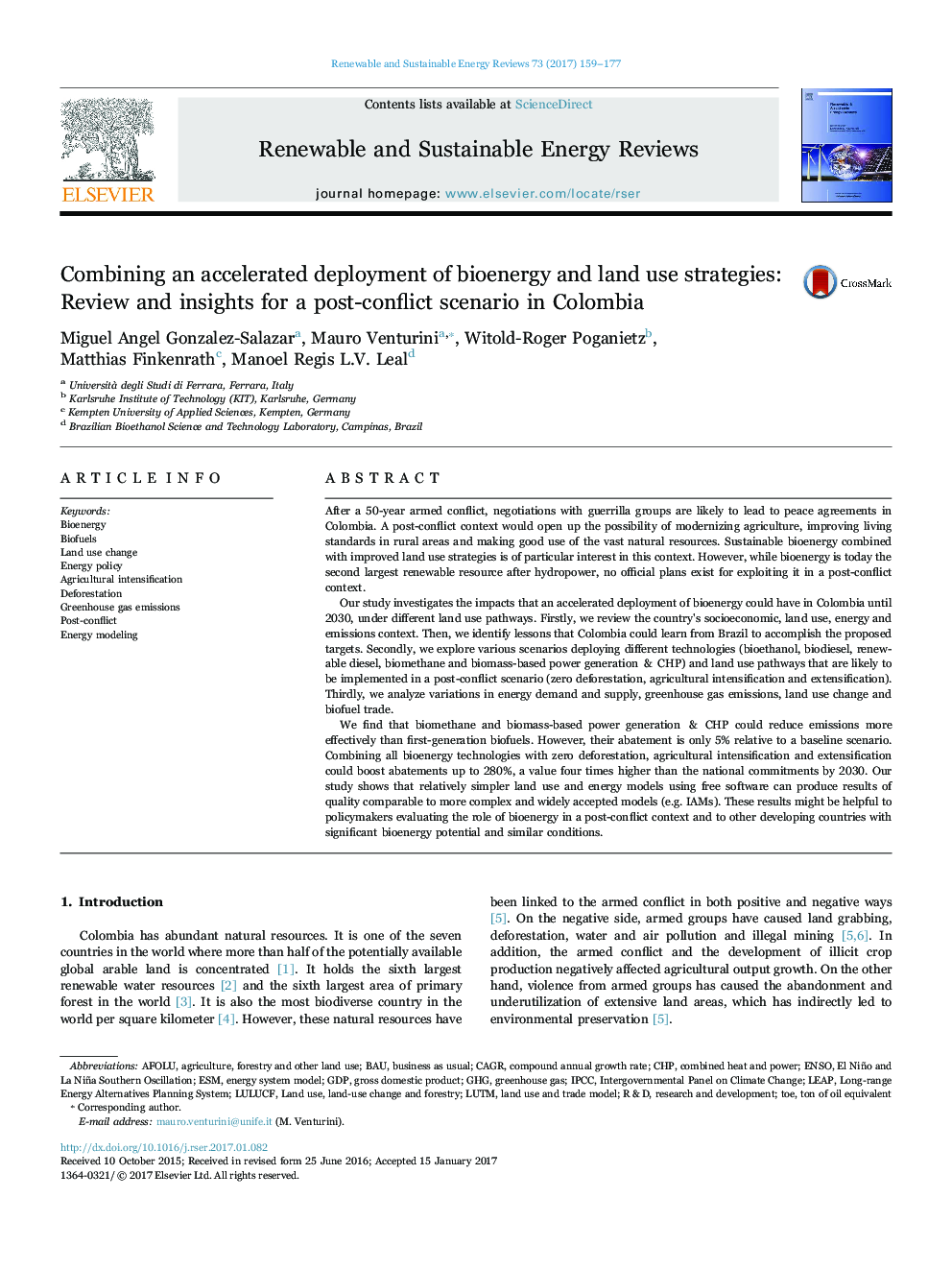| Article ID | Journal | Published Year | Pages | File Type |
|---|---|---|---|---|
| 5482254 | Renewable and Sustainable Energy Reviews | 2017 | 19 Pages |
Abstract
We find that biomethane and biomass-based power generation & CHP could reduce emissions more effectively than first-generation biofuels. However, their abatement is only 5% relative to a baseline scenario. Combining all bioenergy technologies with zero deforestation, agricultural intensification and extensification could boost abatements up to 280%, a value four times higher than the national commitments by 2030. Our study shows that relatively simpler land use and energy models using free software can produce results of quality comparable to more complex and widely accepted models (e.g. IAMs). These results might be helpful to policymakers evaluating the role of bioenergy in a post-conflict context and to other developing countries with significant bioenergy potential and similar conditions.
Keywords
Related Topics
Physical Sciences and Engineering
Energy
Renewable Energy, Sustainability and the Environment
Authors
Miguel Angel Gonzalez-Salazar, Mauro Venturini, Witold-Roger Poganietz, Matthias Finkenrath, Manoel Regis L.V. Leal,
